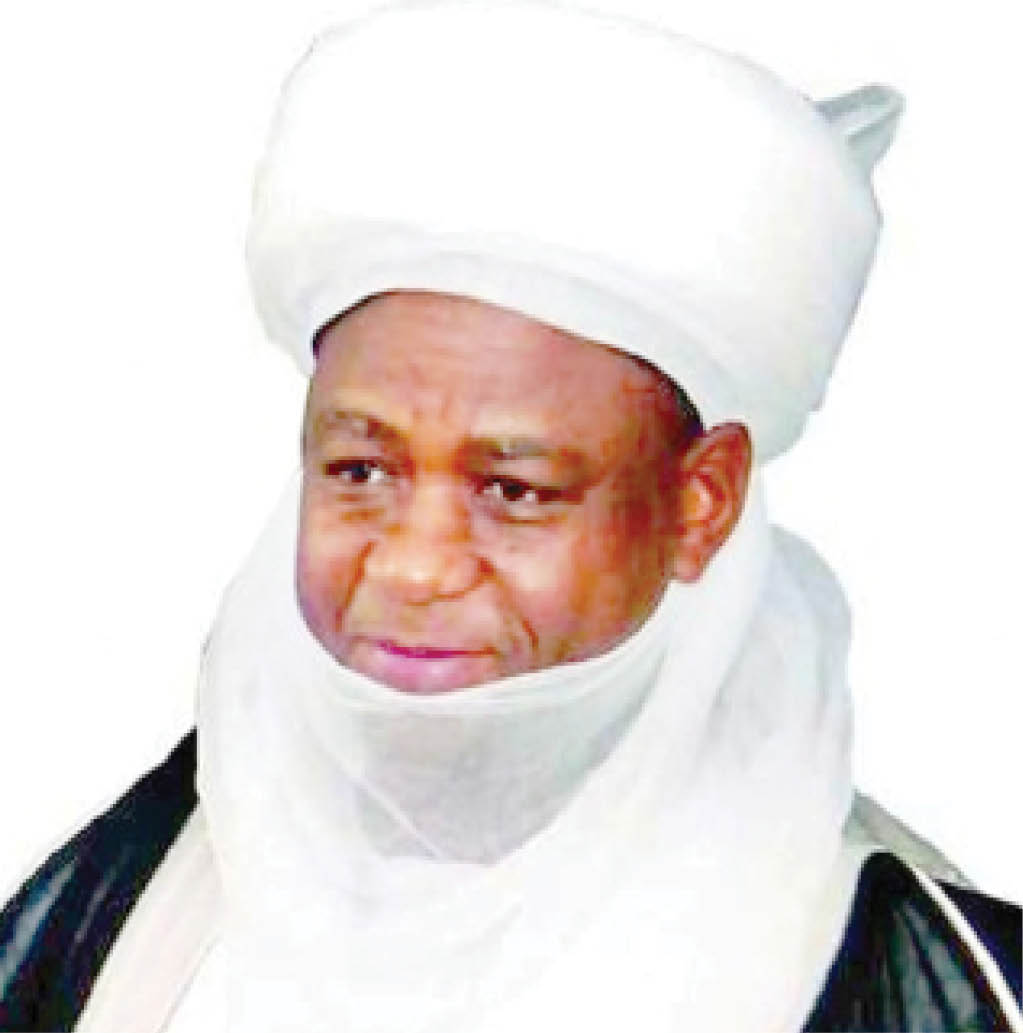Re: Sultan’s address to Senate Committee on Constitution Review
A news report in the Daily Trust of Friday, March 12, 2021, with the headline, How Ironsi, Gowon, Obasanjo laid foundation for insecurity — Sultan, got my attention. Curious to know how the foundation of insecurity was laid in Nigeria, I began reading. I found it in the statement below. “Ironsi’s 1966 unitary government decree, […]

His Eminence, Muhammadu Sa’ad Abubakar III, Sultan of Sokoto.
A news report in the Daily Trust of Friday, March 12, 2021, with the headline, How Ironsi, Gowon, Obasanjo laid foundation for insecurity — Sultan, got my attention. Curious to know how the foundation of insecurity was laid in Nigeria, I began reading. I found it in the statement below.
“Ironsi’s 1966 unitary government decree, Gowon’s 1967 and Obasanjo’s 1976 local government reforms decrees stripped traditional rulers of their powers and gave same to local government councils…, resulting in the insecurity and corruption currently facing the country,” and that “before the 1976 local government reforms, Nigeria was progressive, peaceful, decent and full of beautiful traditions and cultures.” Therefore, hold your breath dear reader, “the National Assembly should)restore their constitutional powers.”
- Victimisation: We may go on strike again, ASUU warns
Despite N134bn allocation, senators, reps seek more funds
No doubt, the Sultan and his National Council of Traditional Rulers of Nigeria are moved, selflessly or selfishly, by the doctrine of self-preservation. What better way to preserve traditional institutions than through constitutional recognition and protection.
In my candid opinion, the existence and prevalence of traditional institutions in today’s Nigeria contributed greatly in drastically slowing down the speed of our journey towards genuine nationhood by systemically throwing spanners of ethnoreligious sentiments and divisions in our country’s wheel of progress. How can unity and nationhood be achieved in a situation where Nigerian citizens are also subjects of a thousand-and-one different traditional rulers? Fingers will continue to be pointed at traditional institutions in a significant number of inter and intra communal crises in Nigeria. Ife-Modakeke, Zangon-Kataf and even the very recent crisis in Billiri are examples. However, as an obedient subject of the Emir of Katsina, I should not, covertly or overtly, join issues with our royal fathers.
A glance at our history will reveal three distinctive phases in the evolution of traditional institutions in Nigeria: the pre-colonial period, when traditional rulers were a necessity; the colonial era, when they were a necessary evil in support of British indirect rule, and the post-colonial period, where we are today, where the necessity for traditional institutions is questionable. A question that readily comes to mind is: “Why should a presidential democracy, a federation of 36 states, a presidential democracy and a federal republic with more than 10,000 elected representatives across three tiers of government require traditional rulers in addition?” This is a rhetoric question since it is glaringly evident that Nigerians are emotionally attached, obsessed and fixated to their respective ceremonial traditional institutions at the expense of loyalty and patriotism to the country.
As expected, some prayers are contained in the Sultan’s speech, among which is that “the constitutional provision should provide for states to enact state laws that cater for specific peculiar matters relating to traditional rulers in their respective states. In addition, the chairmen of councils of chiefs should be recognised by the constitution as members of the ‘National Council of State.’
Two matters arise from the aforementioned prayers from the Sultan’s speech
First, considering the peculiarity of traditional institutions in Hausaland, where traditional institutions remain exclusively under the Fulani, states should be mandated to enact laws that will cater for this peculiarity of the Hausa in such a way that though the Hausa cannot seek for separate chiefdoms from the Fulani, he should be allowed to aspire to the position of Emir in the emirates within Hausaland.
Secondly, if the chairmen of councils of chiefs are to be recognised by the constitution as members of the National Council of State, then the chairmanship of state councils of chiefs should be allowed to rotate periodically among all the members of the council in such a way that every member of the council of chiefs has a chance to be at the National Council of State.
Perhaps we may require to hold a referendum to decide whether or not our royal fathers should be given hereditary privilegensia status fully recognised by the constitution of the Federal Republic of Nigeria.
Aliyu Ammani, U/Shanu Kaduna
